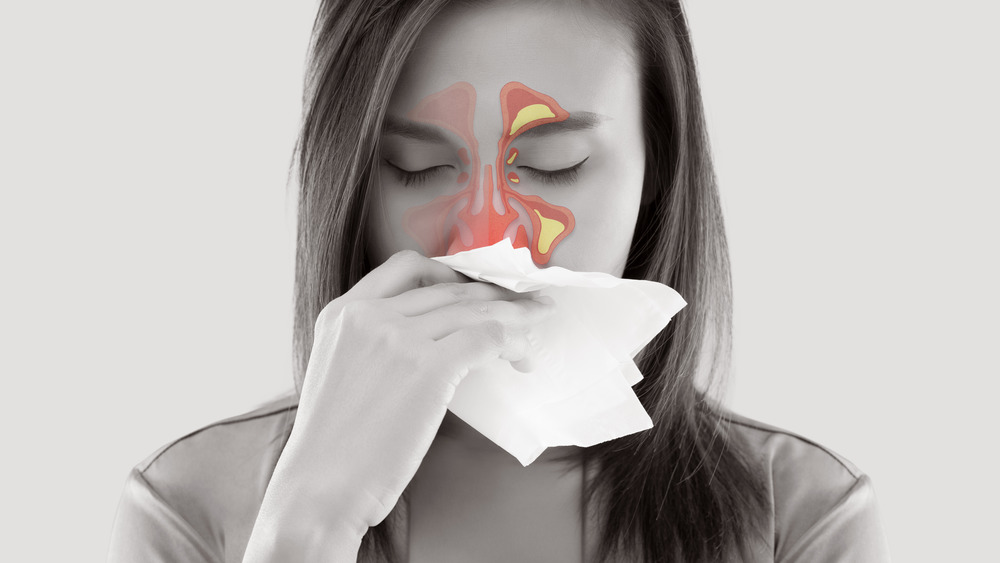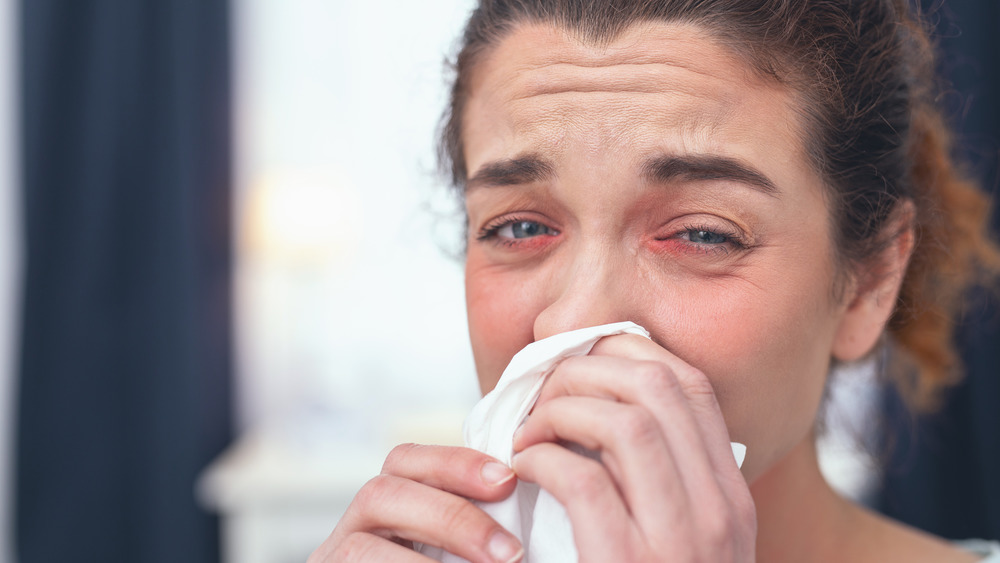Why You Should Think Twice Before Using Vicks In Your Nose
At some point when you've had a cold with congestion, you may have heard the recommendation to use Vicks VapoRub. This strong-scented paste is often rubbed on the chest, throat, and under the nose and is believed to ease congestion and make it easier to breathe.
It's time to pause before putting Vicks under or in your nose, however. It's a habit that could prove dangerous. That's because Vicks contains three main ingredients: menthol, camphor, and eucalyptus oil, according to Healthline. Camphor is toxic to humans, and can easily be absorbed into the body through the thin membrane lining the inside of the nose. Consuming just five milliliters of camphor can kill a child, according to Everyday Health.
Too much camphor could lead to symptoms like abdominal pain, tremors or muscle spasms, nausea or vomiting, increased pulse rate, and unconsciousness, according to the National Institute of Health. Vicks has less than 4.8 percent camphor in its mix, so it would be difficult to absorb enough to cause toxicity. But it's still best to avoid the danger altogether by keeping it out of your nose.
How can Vicks be safely used?
Vicks in the nose can also have a rebound effect that makes congestion worse. An animal study done in 2009 and published in the journal Chest showed an increase in mucus production and accumulation when Vicks fumes were inhaled.
That being said, using Vicks on the chest and throat is a well-known way to fight congestion. Interestingly, studies have shown that the ingredients in Vicks don't physically do anything to ease congestion itself. It's believed, however, that the soothing warmth and aroma can offer a psychological benefit that makes us feel more relaxed and less congested (via the Mayo Clinic).
For maximum benefits, you'll probably want to try a few other things in conjunction with using Vicks on the chest to help relieve symptoms. Consider using a humidifier or taking a warm shower to lubricate sinuses and airways. Saline nasal flushes have been proven effective at opening congested noses, as well as over-the-counter decongestants. And while it may seem counter-intuitive, drinking lots of water to stay hydrated also helps thin mucus, which allows it to clear easier.


